Check out the ELA 2024 Annual Conference Presentations Below!
 KEYNOTE (Track 2): Camille Dungy, Author of Soil: The Story of a Black Mother’s Garden
KEYNOTE (Track 2): Camille Dungy, Author of Soil: The Story of a Black Mother’s Garden
Wednesday, February 21 @ 11:00 am EST
The Story of a Black Mother’s Garden, poet and scholar Camille T. Dungy recounts the seven-year odyssey to diversify her garden in the predominantly white community of Fort Collins, Colorado. When she moved there in 2013 with her husband and daughter, the community held restrictions about what residents could and could not plant in their gardens. In resistance to the homogenous policies that limited the possibility and wonder that grows from the earth, Dungy employs the various plants, herbs, vegetables, and flowers she grows in her garden as metaphor and treatise for how homogeneity threatens the future of our planet, and why cultivating diverse and intersectional language in our national discourse about the environment is the best means of protecting it. Definitive and singular, Soil functions at the nexus of nature writing, environmental justice, and prose to encourage you to recognize the relationship between the peoples of the African diaspora and the land on which they live, and to understand that wherever soil rests beneath their feet is home.
 KEYNOTE (Track 1): Rebecca McMackin, Biodiversity for the Masses: Ecological Horticulture in the Anthropocene
KEYNOTE (Track 1): Rebecca McMackin, Biodiversity for the Masses: Ecological Horticulture in the Anthropocene
Thursday, February 22 @ 3:00 pm EST
In 2021, the National Gardening Survey reported that more than half of American households purchased plants specifically to help butterflies, bees, and birds. Ecological horticulture is arguably mainstream. It’s time to take stock of where this movement is and where we hope to go.
 Jazmin Albarran, Seeding the Future of the Horticulture Industry
Jazmin Albarran, Seeding the Future of the Horticulture Industry
Track 1 – Process: knowledge-sharing and story-telling
Seed Your Future was created in 2014 to address the labor shortage in the horticulture industry and the associated supply chains. A strong future for our industry, which will increasingly be called upon to help solve complex environmental challenges, requires a strong plan for developing future talent. Jazmin Albarran will discuss Seed Your Future’s approach to cultivating and diversifying the labor pipeline for horticulturists and how you can also play a role in seeding the future for our industry.
 Kathleen Salisbury, Silver Linings and Lemonade: An Arboretum Post-Natural Disaster
Kathleen Salisbury, Silver Linings and Lemonade: An Arboretum Post-Natural Disaster
Track 1 – Process: knowledge-sharing and story-telling
In Sept 2021, an EF 2 tornado catastrophically damaged the 187-acre Ambler Arboretum of Temple University. After losing more than 500 trees in their horticultural collection, Kathy was faced with answering the question of how and what do you teach when your outdoor classroom and living laboratory are destroyed in minutes? Kathy will take you through the history of the Ambler Arboretum, the process of recovery that continues to this day, and envision the future of a natural space changed forever while sharing the lessons, from climate change to the resilience of trees, learned along the way.
 Jared Barnes, How We Teach Horticulture
Jared Barnes, How We Teach Horticulture
Track 1 – Process: knowledge-sharing and story-telling
Storytelling is at the heart of learning and understanding. Using stories to discuss practices and understand a science is both important and effective in pedagogy as well as androgogy. Stories help us communicate complex and complicated concepts, making the information and lessons accessible and doable.
 Trevor Smith, You Me and Climate Change
Trevor Smith, You Me and Climate Change
Track 2 – Practice: How we act and adapt
Climate Change it’s what’s for dinner. Not just tonight but every night for the foreseeable future. Since we know what’s being served up, we may as well come up with a creative menu to deal with or mitigate the changes to come. The inconvenient truth about An Inconvenient Truth is that AL Gore only touched on part of it. Excess Co2 is not the problem, it’s a symptom as are the extreme weather patterns. Fossil fuel is only a fraction of the excess carbon in our atmosphere. Fossil fuels make up roughly 4% of the excess Co2 and eliminating fossil fuels is not the only answer, nor is it the most impactful solution. Trevor Smith will take you past the scary numbers and the heartbreaking photographs of emaciated polar bears floating alone on a piece of ice and break out what WE can do. By breaking down what we think we know about our current climate crisis and rebuilding it to include the whole picture, Trevor makes it clear that the power to slow or stop climate change doesn’t rest solely in the hands of the government and will leave you inspired and empowered to take action.
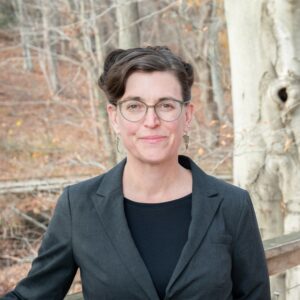
Lea Johnson, Stewardship Science: Integrating Research and Adaptive Management to Benefit People and Nature
Track 2 – Practice: How we act and adapt
How can we bring today’s living biodiversity with us into the future? People working to enhance landscape biodiversity are looking for practical strategies and solutions, some of which don’t yet exist. Research can help to answer questions that arise from practice, leading to discovery and to new and creative solutions – which almost always lead to more questions. We will examine key understandings, examples, and practical considerations for collaborating across fields of expertise and training to bring biodiversity to places where people live, work, and play.
 Paul Bogard, Is It the End of Night?
Paul Bogard, Is It the End of Night?
Track 2 – Practice: How we act and adapt
A starry night is one of nature’s most magical wonders. Yet in our artificially lit world, most of us no longer experience true darkness. In this talk based on his critically acclaimed book THE END OF NIGHT, Paul Bogard seeks to restore our awareness of the spectacularly primal, wildly dark night sky and how it has influenced the human experience across everything from science to art. Using a blend of personal narrative, natural history, science, and astronomy, Bogard shares the importance of darkness—what we’ve lost, what we still have, and what we might regain—and the simple ways we can reduce the brightness of our nights tonight.

 Fran Chismar & Tom Knezick, Lessons Learned: Helpful Hints on your Journey into Native Plants
Fran Chismar & Tom Knezick, Lessons Learned: Helpful Hints on your Journey into Native Plants
Track 1 – Process: knowledge-sharing and story-telling
Over the years, Fran Chismar and Tom Knezick have interviewed some of the brightest minds in ecology and the native plant world. We are constantly reminded of the larger issues in our ecosystem, yet sometimes forget many of the small lessons we learn every day. Tom and Fran share some of their favorite lessons learned over their time on the Native Plants, Healthy Planet podcast to help make this native plant journey enjoyable. Nature is resilient and always finds a way – so will you.
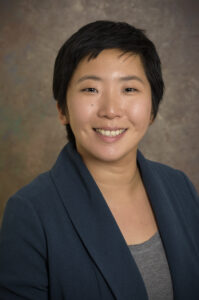
Tracy Qiu, De-centering the “Tree Museum”: Colonial Narratives in Environmental Conservation and Botanical Science
Track 1 – Process: knowledge-sharing and story-telling
This presentation examines how colonization and decolonization relates to Western environmental conservation. Drawing on themes from the environmental humanities, Western conservation movements, scientific imperialism, and botanical collection, the presentation highlights how European views on ‘landscape’, ‘nature’, and ‘wilderness’ have naturalized into contemporary conservation discourse. Through the examination of colonial ideologies in environmental conservation narratives, the presentation also aims to explore what decolonizing and decentering interventions can look like in this context.
 Michelle Arevalos Franco, Working at the Scale of Labor: Practice and Pedagogy
Michelle Arevalos Franco, Working at the Scale of Labor: Practice and Pedagogy
Track 1 – Process: knowledge-sharing and story-telling
Franco will discuss her approach to landscape research and pedagogy, which aims to bridge the divide between designers and laborers. This effort involves addressing the race, class, and knowledge stratification embedded in landscape production by working at “the scale of labor.” Highlighted will be her ongoing “Diggers Studio” and her research approaches that aim to include Latine immigrant laborers in the visualization, knowledge production, and care work of landscape architecture.
 Kathryn Deery, Gardening for the Seasons: Lessons from Lurie Garden
Kathryn Deery, Gardening for the Seasons: Lessons from Lurie Garden
Track 2 – Practice: How we act and adapt
Using Lurie Garden as a model, we will explore shifting our mindset from one of maintenance to management in the garden, designing with ornamentals and native plants, and best practices for cutting back your garden for wildlife and insects. With a few simple adjustments to the way we garden, a beautifully designed space that considers sustainability and ecology is within everyone’s reach.
 Richard McCoy, Electrification of the Workforce
Richard McCoy, Electrification of the Workforce
Track 2 – Practice: How we act and adapt
Participants in “Electrification of the Workforce” will learn about low-impact battery-powered maintenance and operations from Richard A. McCoy – American Green Zone Alliance Northeast Representative (agza.net). This program will emphasize battery-powered tool use, training, and safety, robotics, satisfying client aesthetic expectations, practical examples of transitioning to battery-powered low-impact land care, and reaching a return on investment once one has incorporated battery-powered tools into one’s everyday workload.
Additionally, how with the incorporation of new strategies, we’ll professionalize the Landscape Industry, lead and shape our future, temper the external forces pushing against our industry, improve our service offerings, and develop a more positive public perception of our industry.
 Tim Boland, The Wildland Garden – How Challenging Conditions Led to a Resilient Natural Garden
Tim Boland, The Wildland Garden – How Challenging Conditions Led to a Resilient Natural Garden
Track 2 – Practice: How we act and adapt
Botanist Tim Boland and his wife, horticulturist Laura Coit began their garden experimentation on Martha’s Vineyard in 2002. The setting is a one-acre plot adjacent to a 5300-acre State Forest. Facing the challenges of hordes of deer, low fertility soils, and frequent droughts; now some 20 years later their garden reflects their pioneering spirit to design a home garden that is a savvy mix of Island and North American native plants, most all grown from seeds. Please join Tim as he reflects on both the successes and challenges of growing a resilient and beautiful garden.

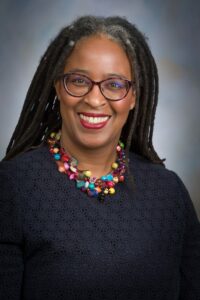 KEYNOTE (Track 2): Camille Dungy,
KEYNOTE (Track 2): Camille Dungy, 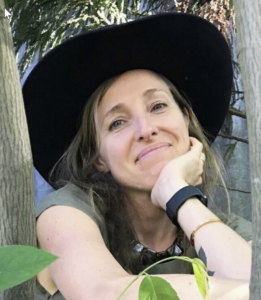 KEYNOTE (Track 1): Rebecca McMackin,
KEYNOTE (Track 1): Rebecca McMackin, 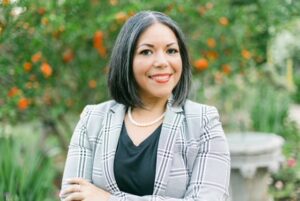 Jazmin Albarran,
Jazmin Albarran, 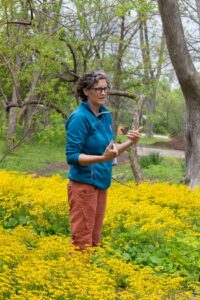 Kathleen Salisbury,
Kathleen Salisbury, 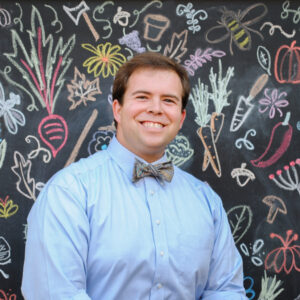 Jared Barnes,
Jared Barnes, 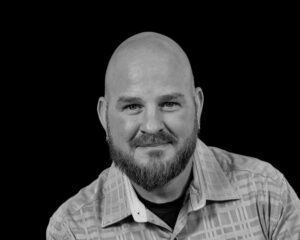 Trevor Smith,
Trevor Smith, 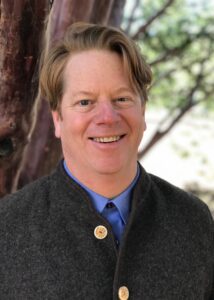 Paul Bogard,
Paul Bogard, 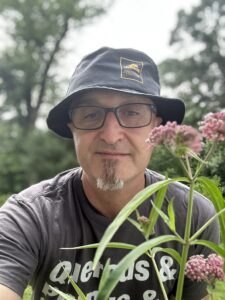
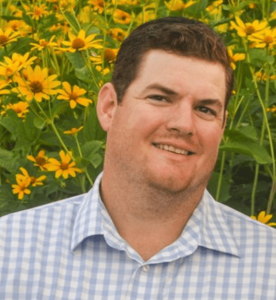 Fran Chismar & Tom Knezick, Lessons Learned: Helpful Hints on your Journey into Native Plants
Fran Chismar & Tom Knezick, Lessons Learned: Helpful Hints on your Journey into Native Plants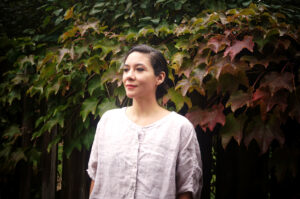 Michelle Arevalos Franco,
Michelle Arevalos Franco, 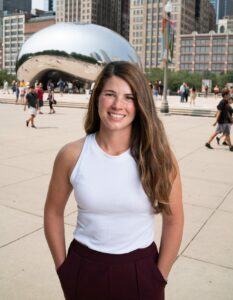 Kathryn Deery,
Kathryn Deery, 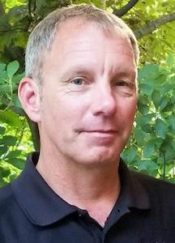 Richard McCoy,
Richard McCoy, 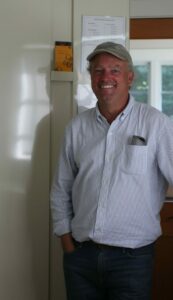 Tim Boland,
Tim Boland, 